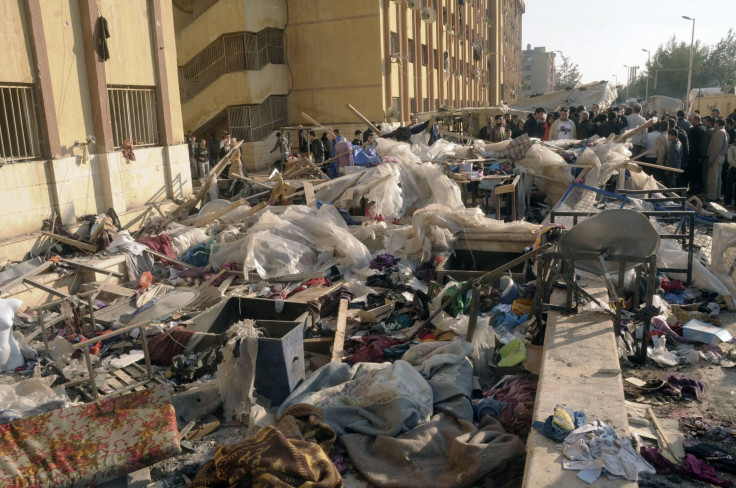Syria: Russia Suspends Operations At Consulate In Aleppo After University Campus Blasts

Russia suspended the operations at its consulate in Syria’s Aleppo city after twin blasts on the campus of a university killed at least 80 people, most of them students, Tuesday.
Aleppo, which is the largest Syrian city, has seen intense fighting between President Bashar Hafez al-Assad’s military and the rebel opposition groups. A large portion of the city is controlled by the Free Syrian Army, a rebel group.
"The operations of the Russian Federation's Consulate General in Aleppo have been suspended," a statement from the Russian Foreign Ministry said, according to an IANS report. "Regarding all issues, contact the consular department of the Russian Embassy in Damascus," it said.
The deadly explosions ripped through the Aleppo University campus when the students were taking their semester exams. The blasts tore off the facades of the building and set vehicles ablaze. Bodies were found scattered across the ground.
The Syrian Observatory for Human Rights, a UK-based activist group, put the death toll at 83 and the number of injured at 153 while the Syrian activists said at least 87 people were killed in the explosions.
The cause of the explosions was not known and both the government and the opposition forces blamed each other for the blasts.
According to the state media reports, rebels fired two missiles at the university. A military source told the AFP that a stray surface-to-air missile fired by rebels hit the campus, which lies in a government-controlled area of the city.
Syria's ambassador to the United Nations condemned the attack as a "cowardly terrorist act."
Meanwhile, the rebel forces reportedly claimed that the government warplanes had fired the missiles at the campus.
"The warplanes of this criminal regime do not respect a mosque, a church or a university," Abu Tayem, a student, was quoted as saying by Reuters.
According to the U.N. data, at least 60,000 people have been killed in the revolt by the opposition groups that began in March 2011.
© Copyright IBTimes 2024. All rights reserved.






















